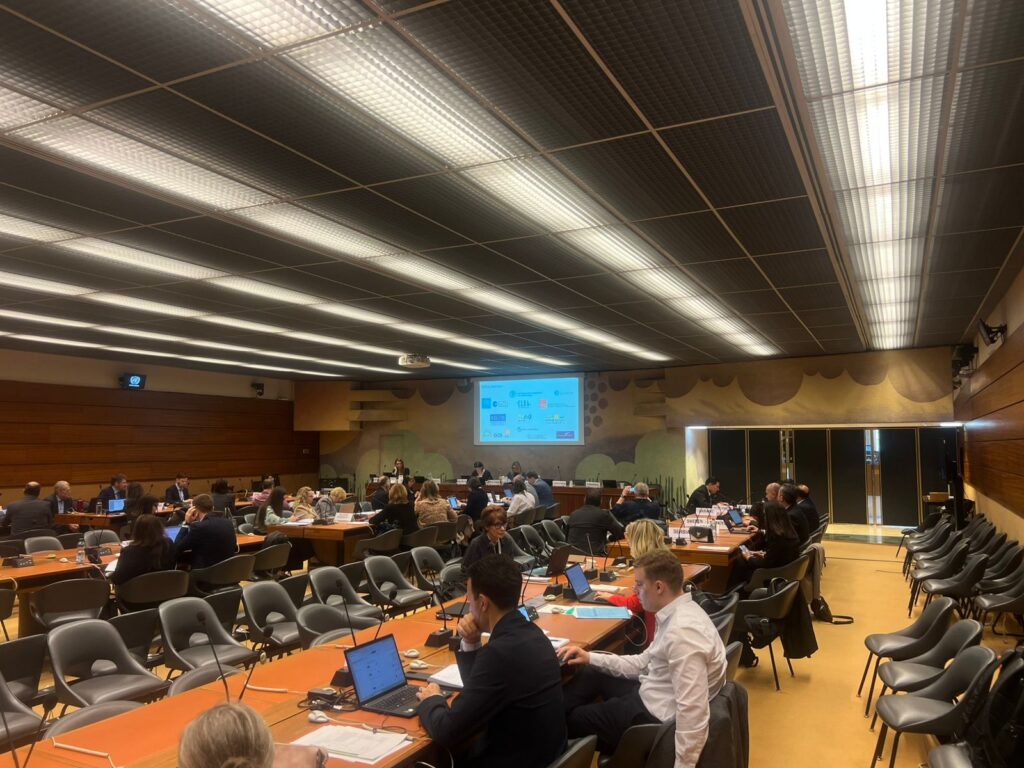Highlight 35/2025: How Do Diplomatic Missions Shape Policy at UNECE? A Case Study from the Field
Ilyas Babayev, 12 August 2025

The United Nations Economic Commission for Europe (UNECE) plays a vital role in fostering cooperation and setting standards across 56 countries in Europe, North America, and Central Asia. While technical bodies and expert groups develop the core content of policies, it is often the diplomatic missions that shape how these ideas evolve, are adopted, and implemented. Their influence is especially visible in areas such as land administration, a critical component of sustainable development and good governance.
Diplomatic missions serve as key actors in aligning national priorities with international commitments, including the 2030 Agenda for Sustainable Development. Goals like SDG 11 (Sustainable Cities and Communities) and SDG 1.4 (access to ownership and control over land and property) rely on strong land governance. At UNECE, the Working Party on Land Administration (WPLA) serves as the main intergovernmental platform where land policies are discussed, reviewed, and refined.
During the 14th session of WPLA, held in Geneva in April 2025, delegates from various member States—including the Permanent Mission of the Republic of Azerbaijan—participated in discussions on digital transformation, land tenure security, and transparent land markets. Through this engagement, diplomats not only represent national institutions like the State Service on Property Issues of Azerbaijan, but also contribute to shaping UNECE’s strategic directions in a way that reflects regional needs.
The impact of diplomatic engagement goes beyond formal statements. Missions often participate in drafting conclusions, negotiating resolutions, and initiating capacity-building projects, particularly in Eastern Europe and Central Asia. According to UNECE’s Country Profiles, such collaboration helps countries improve cadastral systems, introduce e-governance tools, and address land-related inequalities—areas that align with the Voluntary Guidelines on the Responsible Governance of Tenure (VGGT) supported by FAO and UN-Habitat.
Diplomatic presence also plays a critical role in multi-stakeholder dialogue. As noted in UNECE’s Real Estate Market Advisory Group (REM), inclusive governance depends on the cooperation of governments, the private sector, and civil society. In this context, diplomatic missions act as conveners and facilitators, linking experts and decision-makers across sectors.
What makes their role unique is their dual function: they are simultaneously policy influencers within UN bodies and policy messengers to national institutions. This function cannot be replicated by NGOs or academic institutions. As UNECE’s guidelines on effective land administration emphasize, success depends not only on technical solutions, but also on the ability to build consensus and trust among diverse stakeholders.
In conclusion, diplomatic missions at UNECE are more than representatives; they are active policy shapers in multilateral governance. By bringing national experience into global dialogue—and carrying international standards back home—they help bridge local realities with global ambitions in land governance.
Ilyas Babayev, Highlight 35/2025: How Do Diplomatic Missions Shape Policy at UNECE? A Case Study from the Field, 12 August 2025, available at www.meig.ch
The views expressed in the MEIG Highlights are personal to the authors and neither reflect the positions of the MEIG Programme nor those of the University of Geneva.
